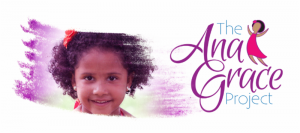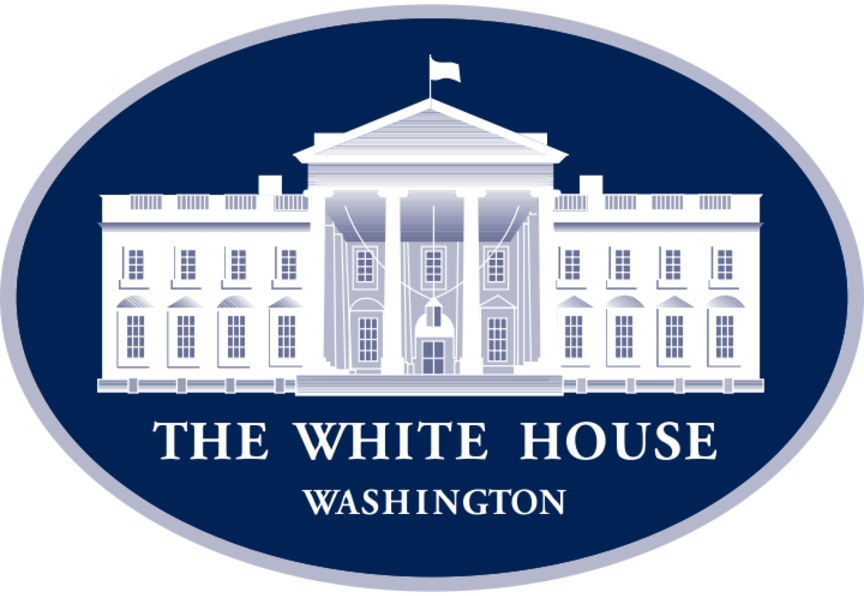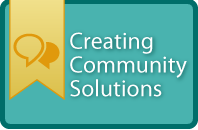Mental Health and Community Well-Being Is Focus of Initiative Honoring Memory of Ana Grace Márquez-Greene
/
The parents of Ana Marquez-Greene, one of the students whose life was tragically ended at Sandy Hook Elementary School nearly a year ago, have announced plans to convene "Love Wins," a day-long conference for those concerned with mental health and community well-being to help build connections that prevent and cope with trauma.
To be held on December 2 at the University of Hartford, the conference is the inaugural initiative of The Ana Grace Project, and is designed to “promote love, community and connection for every child and family,” and a day dedicated to honoring Ana Grace.
Nelba Márquez-Greene and Jimmy Greene have dedicated themselves to creating real solutions to the kind of violence that took their daughter’s life. They have developed The Center for Community and Connection in partnership with the Klingberg Family Centers as a transformational initiative of The Ana Grace Project to identify the most effective ways to build community and interpersonal connection to prevent violence and promote recovery. The Center aims to accomplish this objective through research, practical tools, professional development and public policy.
The Center was inspired by the heart and soul of Ana Grace’s mother, Nelba Márquez-Greene, LMFT, a licensed Marriage and Family Therapist employed by Klingberg Family Centers. Nelba Márquez-Greene and Jimmy Greene “believe that love and community are the antidotes for violence and are spurred on not on ly by their loss but by their faith and the belief that it is always best to “Overcome Evil with Good,” according to the organization’s website.
ly by their loss but by their faith and the belief that it is always best to “Overcome Evil with Good,” according to the organization’s website.
Nelba Márquez-Greene and Jimmy Greene are both alumni of the University of Hartford.
The program on Dec. 2 will feature Bruce Perry, MD, Ph.D., as its keynote speaker and is a collaboration of the resources of Western Connecticut State University, Central Connecticut State University, the University of Hartford, Klingberg Family Centers and Stanley Black and Decker. Perry is the Senior Fellow of The Child Trauma Academy, a not-for-profit organization based in Houston, TX, and adjunct Professor in the Department of Psychiatry and Behavioral Sciences at the Feinberg School of Medicine at Northwestern University in Chicago.
A workshop on Creating Compassionate Communities by Christopher Kukk will address weaving compassion into the fabric of learning (schools) and living (cities and towns) communities, drawing upon ideas from neuroscience, psychology, evolutionary biology, economics and other social sciences. Dr. Kukk is Professor of Political Science at Western Connecticut State University and founding Director of the Center for Compassion, Creativity and Innovation.
A session to be led by Alice Forrester will describe New Haven's efforts to reduce the impact of adverse childhood experiences using a two-generational approach. Participants will discuss how collaboration and grass roots activism can impact children and families facing mental health challenges. Dr. Forrester is the Executive Director of the Clifford Beers Child Guidance Clinic in New Haven, a community-based, mental health center for excellence for the treatment of children and families. She was appointed by Governor Malloy to sit on the Sandy Hook Commission and has served as the Project Director of two National Child Traumatic Stress Network grants.
“For anyone whose child has been the victim of senseless violence it can seem almost impossible to go on. Grappling with anger and despair, you search for a way to redeem what has been lost, said Nelba Márquez-Greene on the organization’s website. “And here we stand, knowing we must do something, something meaningful, to help all of us turn the page and begin the next chapter. Our hope as a family is to invest in creating solutions that will draw these individuals away from violence and replace it with the powerful love and connection that can only be found in a healthy community of caring.”
Additional session topics include the human cost of unmet mental needs in our cities, Mental Health First Aid, Circle of Security Parenting and Teaching and Learning with Compassion.
Conference participants will learn about and contribute to best practices in building community and interpersonal connections to prevent violence and promote recovery. Organizers anticipate that conference outcomes will contribute to a shared body of knowledge for community members, parents, and professionals to create their own roles in building connections that “will enable love to win.”
The program will also include presentations by Steven Girelli, Ph.D., President & CEO, Klingberg Family Centers; Bryan Gibb, M.B.A., National Council of Behavioral Health; Deborah McCarthy, O.T., Mindfullness Collaborative for Youth and Schools; Adi Flesher, M.Ed., Garrison Institute; Isabel Pacheco Logan, L.C.S.W., Office of the Public Defender; Keith Gaston, M.S.W., Village for Families and Children; Charlie Slaughter, M.P.H., R.D., Department of Children and Families; Geoffry Scales, Hartford Juvenile Probation; Karl Koistein, L.C.S.W., DCF; and Iran Nazarrio, COMPASS Youth Collaborative.
There will also be a performance piece about gun violence by Janis Astor del Valle and Lara Herscovitch, and a performance by the Connecticut Children’s Chorus. CEUs will be available for teachers. Registration and additional information is available at
http://events.constantcontact.com/register/event?llr=kdmy5ioab&oeidk=a07e8bf8e4yaa208d5f
Founded in 1903, Klingberg Family Centers is a private nonprofit charitable organization offering an array of treatment programs. The organization’s programs are designed to serve children and families whose lives have been affected by trauma in its various forms, family difficulties, and mental health issues.



































